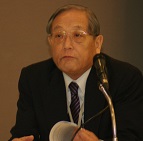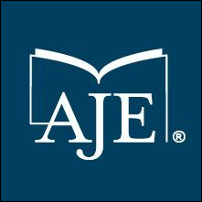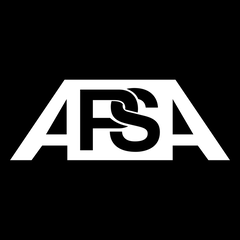Allegations of Misconduct
1. Commitment to Research Integrity
The Asian Review of Public Administration (ARPA) is committed to maintaining the highest levels of integrity, accountability, and ethical practice in scholarly publishing.
We recognize that maintaining trust in the scholarly record depends on addressing allegations of misconduct promptly, fairly, and transparently, following internationally recognized guidelines such as those provided by the Committee on Publication Ethics (COPE).
This policy outlines the procedures we follow to handle all allegations of research or publication misconduct, both before and after publication.
2. Definition and Scope of Misconduct
Misconduct includes, but is not limited to, the following:
-
Plagiarism: The appropriation of another person’s ideas, processes, results, or words without giving appropriate credit.
-
Fabrication: The invention of data, research findings, or results and reporting them as if they were real.
-
Falsification: The manipulation of research materials, equipment, processes, or data to misrepresent results.
-
Authorship Misconduct: Practices such as including individuals as authors who did not make significant contributions (guest/gift authorship), excluding deserving contributors, or disputes over rightful authorship.
-
Conflict of Interest Mismanagement: Failure to disclose relevant financial, personal, or professional relationships that could inappropriately influence or bias research outcomes or publication decisions.
-
Ethical Violations in Research: Breaches of ethical standards, such as failure to obtain institutional ethics approval for studies involving human or animal subjects, or violations of participant consent and data protection protocols.
-
Redundant/Multiple Submissions: Submitting the same manuscript simultaneously to more than one journal, or publishing substantially the same work in multiple places without appropriate citation or disclosure.
-
Peer Review Manipulation: Attempting to subvert the peer-review process, such as by suggesting fabricated reviewer identities or submitting fraudulent reviews.
3. Who Can Report Allegations
Allegations can be raised by:
-
Authors;
-
Reviewers;
-
Editorial board members;
-
Readers or users of the published content;
-
Institutional representatives (universities, research organizations, funders);
-
Whistleblowers (including anonymous sources, provided credible evidence is presented).
Reports must be made in good faith and with sufficient detail to allow investigation.
4. How to Report Allegations
Reports of suspected misconduct should be submitted in writing, providing:
-
A clear description of the alleged misconduct;
-
Supporting evidence, documentation, or examples (if available);
-
Contact details for follow-up (anonymous reports will be reviewed but may be limited if details are insufficient).
Reports should be sent to:
Editorial Office Email: secretariat@eropa-arpa.co
5. Whistleblower Protection
The Asian Review of Public Administration (ARPA) is committed to protecting the rights and confidentiality of individuals who report concerns in good faith.
-
We ensure whistleblower identities are protected throughout the investigation, except when disclosure is necessary for a fair and complete resolution.
-
We do not tolerate retaliation or adverse consequences against whistleblowers or complainants acting in good faith.
6. Investigation Process
Upon receiving an allegation, the editorial team will follow these steps:
Initial Assessment
-
The Editor-in-Chief, possibly with support from the editorial board, will assess whether the allegation is credible, relevant, and supported by sufficient evidence.
-
If preliminary review finds the allegation credible, the investigation proceeds.
Notification
-
All relevant parties (e.g., authors, reviewers, institutions) will be notified in writing about the allegations.
-
Affected authors will be given the opportunity to respond and provide clarification or additional information.
Consultation
-
When necessary, external experts or the authors’ affiliated institutions may be consulted for an independent evaluation.
-
Original data, submission records, peer review files, and correspondence may be examined.
Timeliness
-
Investigations will be conducted promptly, typically within 30–90 days, depending on the complexity and cooperation of involved parties.
7. Handling Pre-Publication Allegations
If misconduct is alleged during the review or production stages:
-
Editorial decisions will be suspended pending investigation.
-
If misconduct is confirmed, the manuscript will be rejected and any co-submissions flagged.
-
In severe cases, authors’ affiliated institutions may be notified.
8. Handling Post-Publication Allegations
If misconduct is alleged after publication:
-
The editorial team will conduct a fair, impartial, and confidential investigation.
-
Depending on the findings, actions may include:
-
Publishing a correction or erratum for minor issues;
-
Publishing a retraction notice for major breaches (with clear reasons stated);
-
Issuing an editorial expression of concern if an investigation is ongoing or evidence is inconclusive.
-
-
Institutions, funders, or regulatory bodies may be informed as appropriate.
9. Corrective and Disciplinary Actions
When misconduct is confirmed, The Asian Review of Public Administration (ARPA) reserves the right to:
-
Retract published articles and publicly state the reasons;
-
Issue formal corrections, retractions, or notices of concern;
-
Ban offending authors or reviewers from future submissions or involvement;
-
Notify relevant institutions, funders, or professional organizations;
-
Report severe cases (such as fraud) to legal or regulatory authorities when required.
10. Transparency and Communication
We are committed to:
-
Communicating investigation outcomes to the complainant (where identifiable), the involved parties, and relevant institutions;
-
Publishing transparent public records (corrections, retractions) as part of maintaining the scholarly record
-
Handling all communications sensitively and professionally, respecting due process and confidentiality.
11. Periodic Review of Policy
This policy will be reviewed and updated regularly to align with evolving international standards and best practices (including COPE Core Practices and Web of Science selection criteria). Any revisions will be communicated on the journal’s website and shared with authors, reviewers, and editorial board members.
Contact Information
For all misconduct-related inquiries or reports, please contact:
Editorial Office – The Asian Review of Public Administration (ARPA)
secretariat@eropa-arpa.co
Reference:
Committee on Publication Ethics (COPE), https://publicationethics.org/












